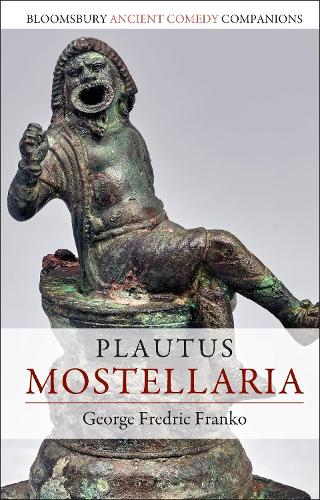
Plautus: Mostellaria
(Hardback)
Available Formats
Publishing Details
Plautus: Mostellaria
By (Author) Professor George Fredric Franko
Bloomsbury Publishing PLC
Bloomsbury Academic
13th January 2022
United Kingdom
Classifications
Tertiary Education
Non Fiction
Comedic plays
Literary studies: plays and playwrights
872.01
Physical Properties
Hardback
176
Width 138mm, Height 216mm
354g
Description
Plautus' Mostellaria is one of ancient Romes most breezy and amusing comedies. The plot is ridiculously simple: when a father returns home after three years abroad, a clever slave named Tranio devises deceptions to conceal that the son has squandered a fortune partying with pals and purchasing his prized prostitutes freedom. Tranio convinces the gullible father that his house is haunted, that his son has purchased the neighbors house, and that he must repay a moneylender. Plautus animates this skeletal plot with farcical scenes of Tranios slapstick abuse of a rustic slave, the young lovers maudlin song lamenting his prodigality, a cross-gender dressing routine, a drunken party, a flustered moneylender, spirited slaves rebuffing the father, and Tranio hoodwinking father and neighbor simultaneously. This is the first book-length study of Mostellaria in its literary and historical contexts. It aims to help readers and theater practitioners appreciate the script as both cultural document and performed comedy. As a cultural document, the play portrays a range of Roman preoccupations, including male ideologies of the acquisition, use and abuse of property, relations between owners and enslaved persons, the traffic in women, tensions between city and country, the appropriation and adaptation of Greek culture, and the specters of ancestry and surveillance. As a performed comedy, the play celebrates the power of creativity, improvisation and metatheater. In Mostellarias farce, sleek simplicity replaces complexity as Plautus aggrandizes his comic hero by stripping plot to the minimum and leaving Tranio to operate alone with no resources other than his quick wit. A chapter on Mostellarias reception considers modernitys continuing fascination with Plautine farce and trickery.
Author Bio
George Fredric Franko is Professor of Classical Studies at Hollins University, USA.
